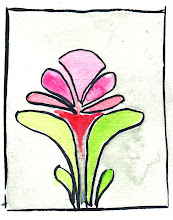I remember years ago, my friend Pavel reciting this poem to a Russian friend of mine who was a huge fan of poetry and Yevtushenko's work in particular. She was amazed to be talking about a long dormant love in her native tongue in her new home. I remember crying over the swan song of the lost brother. Anyway, let me leave the word to Pavel:
I found it by Googling the remembered refrain “dove-gray brother”. The Cyrillic didn’t appear correctly in my browser – it came out as a lot of funny accented Roman letters – until I fixed that by right-clicking in Windows Explorer and choosing Cyrillic under Encoding.
I heard Yevgeny Yevtushenko recite some of his poems at Princeton, in 1985 or 86 I think (my freshman year). He delivered some in English, others in Russian (these preceded by readings of the translations by a certain literature professor, from Queens College as I recall, who accompanied him on stage.) Yevtushenko was quite charismatic and expressive, even if you didn’t know the language. (It helped to have been told the content first.)
LAMENT FOR A BROTHER
To V. Shchukin
With blood still dripping from its
warm and sticky beak,
its neck dangling over a bucket's edge,
a goose lies rocking in a boat,
like an ingot
of slightly tarnished silver.
There had been two of them flying
above the river Vilyui.
The first had been brought down in flight
while the other,
gliding low,
risking his neck,
hovers over the boat,
cries over the forest:
"My dove-gray brother,
we came into the world
clamorously breaking through our shells,
but every morning
Mother and Father
fed you first,
when it might have been me.
My dove-gray brother,
you had this blue tinge,
teasing the sky with a bold similarity.
I was darker,
and the females desired
you more,
when it might have been me.
My dove-gray brother,
without fear for the return,
you and I flew away, over the seas,
but obnoxious geese from other lands surrounded
you first,
when it might have been me.
My dove-gray brother,
we were beaten and bowed.
Together we were lashed by the tempests,
but for some reason the water slid
more easily off your goose's back
when it might have been mine.
My dove-gray brother,
we frayed out feathers.
People will eat both of us by the fireside -
perhaps because
the struggle to be first
devoured you,
consumed me.
My dove-gray brother,
half our lives was a pecking match,
not treasuring our brotherhood, our wings, and our souls.
Was reliance really impossible -
I on you,
and you on me?
My dove-gray brother,
I beg at least for a pellet,
curbing my envy too late;
but for my punishment people killed
you first,
when it might have been me..."
1974
Translated by Arthur Boyars and Simon Franklin
This poem struck me particularly. He explained in English, before the English translation and his Russian recitation, that it was inspired by the event that made him gave up hunting. Once he killed a beautiful goose with unusual, striking bluish-grey plumage, and after that another goose flew overhead and cried. His imagination supplied the rest of the sad story of jealousy and regrets, and the poem.
Here is a transliteration, so you can have some sense of the dactylic meter and rhyme of the original. Also “you” and “me,” so often repeated, provide an internal rhyme in many lines. (Or at least have an assonance, “tebya” and “menya”). So I think it would better translate using “thee” and “me,” despite the spurious archaism in English. I suppose you will challenge me to make my own complete rhyming translation.
By the way, the Russian for “goose” happens to be “gus’” transliterated and almost the same pronounced! (Just palatalize the s.)
PLACH PO BRATU
S krov’yu iz klyuva, tyopel i lipok,
Sheyey motaya po krayu vedra,
V lodke kachayetsya gus’ budto slitok
Chut’ chernovatovo serebra.
Dvoye leteli oni vdol’ Vilyuya.
Pervyy ulozhen byl vlyot, a drugoy,
Nizko letya, golovoyu riskuya,
Kruzhit nad lodkoy, krichit nad taygoy:
“Sizyy moy brat, poyavilis’ my v mire,
Gromko svoyu skorlupu prolomya,
No po utram tebya pervym kormili
Mat’ i otets, a mogli by – menya.
Sizyy moy brat, ty byl chutochku sinii,
Nebo pokhozhest’yu derzkoy draznya,
Ya byl temnei, i lyubili gusyni
Bol’she – tebya, a mogli by – menya.
Sizyy moy brat, vozvrashchat’sya ne trusya,
My uleteli s toboy za morya,
No obstupali zamorskiye gusy
Pervym – tebya, a mogli by – menya.
Sizyy moy brat, my i bity i gnuty,
Vmeste nas livny khlestali klhest’mya,
Tol’ko skhodila voda pochemu-to
Legche s tebya, a mogla by – s menya.
Sizyy moy brat, istrepali my per’ya.
Lyudi s’’yedyat nas dvoikh u ognya.
Ne potomy l’, chto stremleniye byt’ pervym
Yelo tebya, pozhiralo menya?
Sizyy moy brat, my klevalis’ polzhizni,
Bratstva, i kryl’yev, i dush ne tsenya.
Razve nel’zya bylo nam polozhit’sya,
Mne – na tebya, a tebe – na menya?
Sizyy moy brat, ya proshu khot’ drobiny,
Zavist’ moyu zapozdalo klyanya,
No v nakazan’ye mne lyudi ubili
Pervym – tebya, a mogli by – menya.
Subscribe to:
Post Comments (Atom)

No comments:
Post a Comment